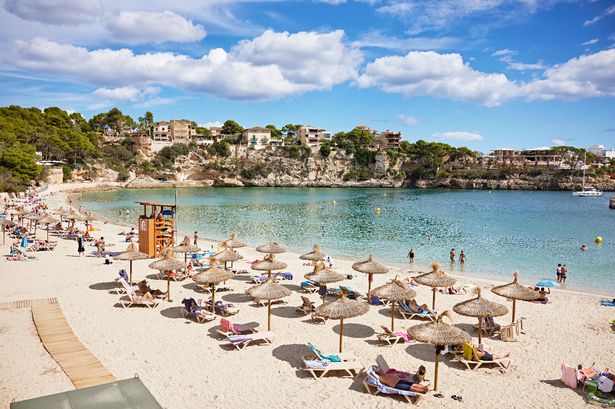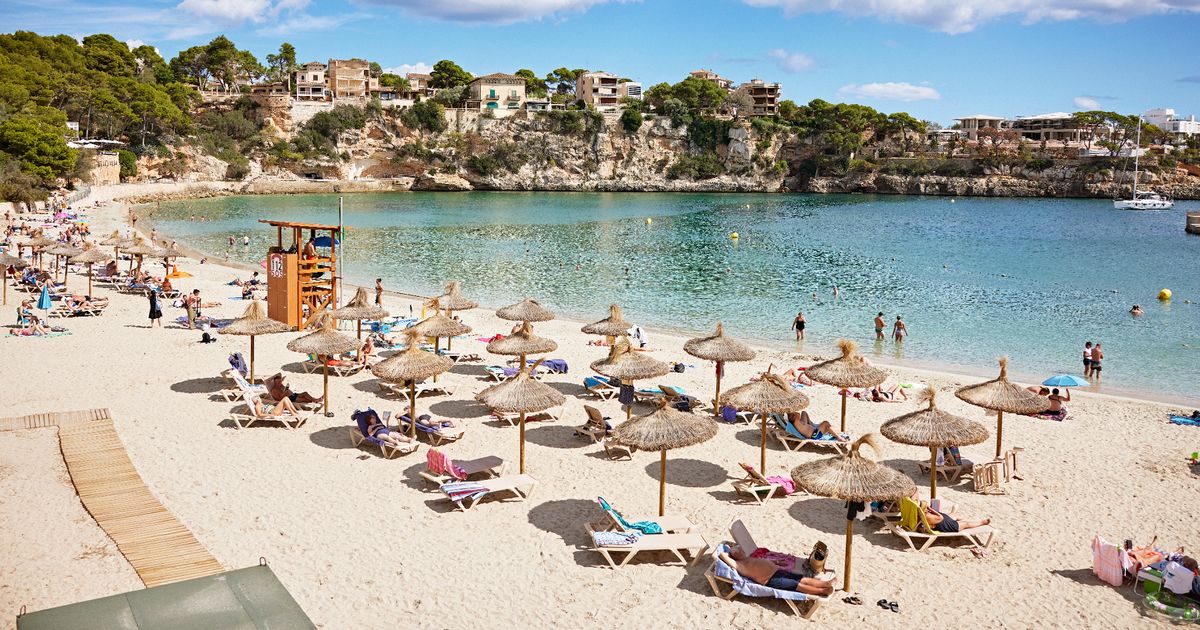From smoking and drinking rules to reserving spots and even playing music, here’s how much it could cost you to break Spain’s biggest beach rules The beaches of Spain are visited by millions of holidaymakers every year – but there are strict rules in place that tourists may be unaware of(Image: Getty Images)
The beaches of Spain are visited by millions of holidaymakers every year – but there are strict rules in place that tourists may be unaware of(Image: Getty Images)
Holidaymakers heading to Spain this summer have been warned of strict rules when visiting the country’s beaches. Tourists may be unaware of laws in place in some popular areas that could result in hefty fines if broken.
From using soap and shampoo in beach showers to smoking on the beach, there are some actions that many Brits on holiday might not think twice about but are in fact banned across Spain. And other areas have their own laws that could catch holidaymakers out – including and reserving spots on the beach with towels and umbrellas or even urinating in the sea.
Spanish news outlet the Majorca Daily Bulletin advised holidaymakers visiting the largest of the Balearic Islands: “Although many of the by-laws are not strictly enforced in Mallorca you could be fined for wearing swimming clothes away from the beach.” Here are some more of Spain’s beach laws and how much it could cost tourists to break them, as compiled by Spain’s leading property portal Idealista.
One that most should be familiar with given that similar laws are in place here in the UK is that littering on the beach is a big no-no. Leaving rubbish behind on the sand can see visitors slapped with fines of between €751 and €1,500, depending on which part of Spain the offence takes place.
Meanwhile, the majority of Spain’s beaches are now smoke-free zones, with plans moving forward in the country to ban smoking in more places including restaurant terraces, outdoor areas in bars . Fines for smoking where it’s banned, including 53 beaches in Andalucía, 61 beaches on the Canary Islands and 18 beaches on the Costa del Sol, can reach €450.
We have a dedicated newsletter for What’s On news and reviews. It’s free and you can sign up to receive it here. It will keep you up to date with all the latest updates on food, drink, entertainment and events in and around the North East.
Holidaymakers heading to Spain for the lively nightlife should also be aware that they won’t be allowed to keep the party going on the beach. Loud music and beach parties are “strictly regulated”, with fines reaching €22 per square yard for unauthorised gatherings and €750 for playing music too loudly.
In a similar vein, the consumption of alcohol on beaches or promenades is banned in some parts of Spain. Although this is one law that is “often overlooked”, fines when enforced can range from an eye-watering €1,501 to €3,000.
Moving on to some of the more obscure rules that many tourists may not be aware of, holidaymakers should make sure not to nod off at the end of a long day spent soaking up the sun at the beach. Fines for those caught sleeping overnight on the beach can range from €40 to €1,500, and are especially strict in Valencia.
One rule that is particularly likely to catch holidaymakers out is that using soap or shampoo at beach showers is banned nationwide, and punishable by a €750 fine. This is to prevent pollution of the local water supply and protect marine life.
Meanwhile, reserving spots with towels or umbrellas is a practice that many holidaymakers engage in on busy beaches. But this is in fact forbidden in some of Spain’s tourist hotspots, and could result in having to fork out up to €300 in Malaga or €750 in Benidorm.
Other things that holidaymakers may never consider would be outlawed include playing paddle tennis, which is forbidden in areas including Benidorm and San Javier, Murcia, with fines up to a staggering €3,000. And surprisingly, even urinating in the sea could lead to fines of €705 in places like Vigo on the northwest coast.
Finally, one of the highest fines a tourist in Spain can receive is for swimming under a red flag. These flags are put up when the conditions are dangerous, such as for strong currents, high waves or bad weather, and the safety factor means that authorities are very strict over this rule – with fines for breaking it costing up to €3,000.
